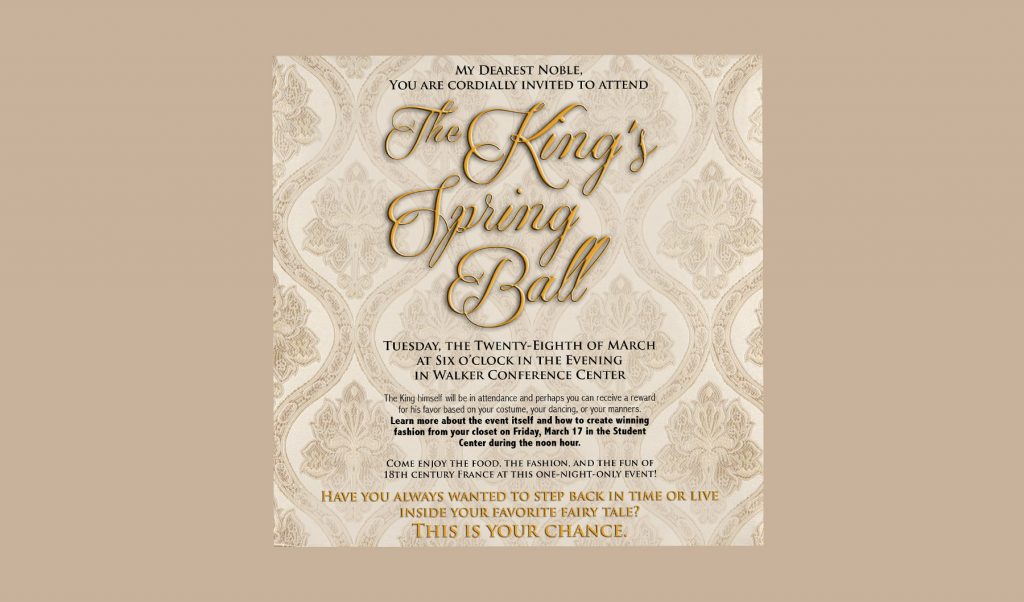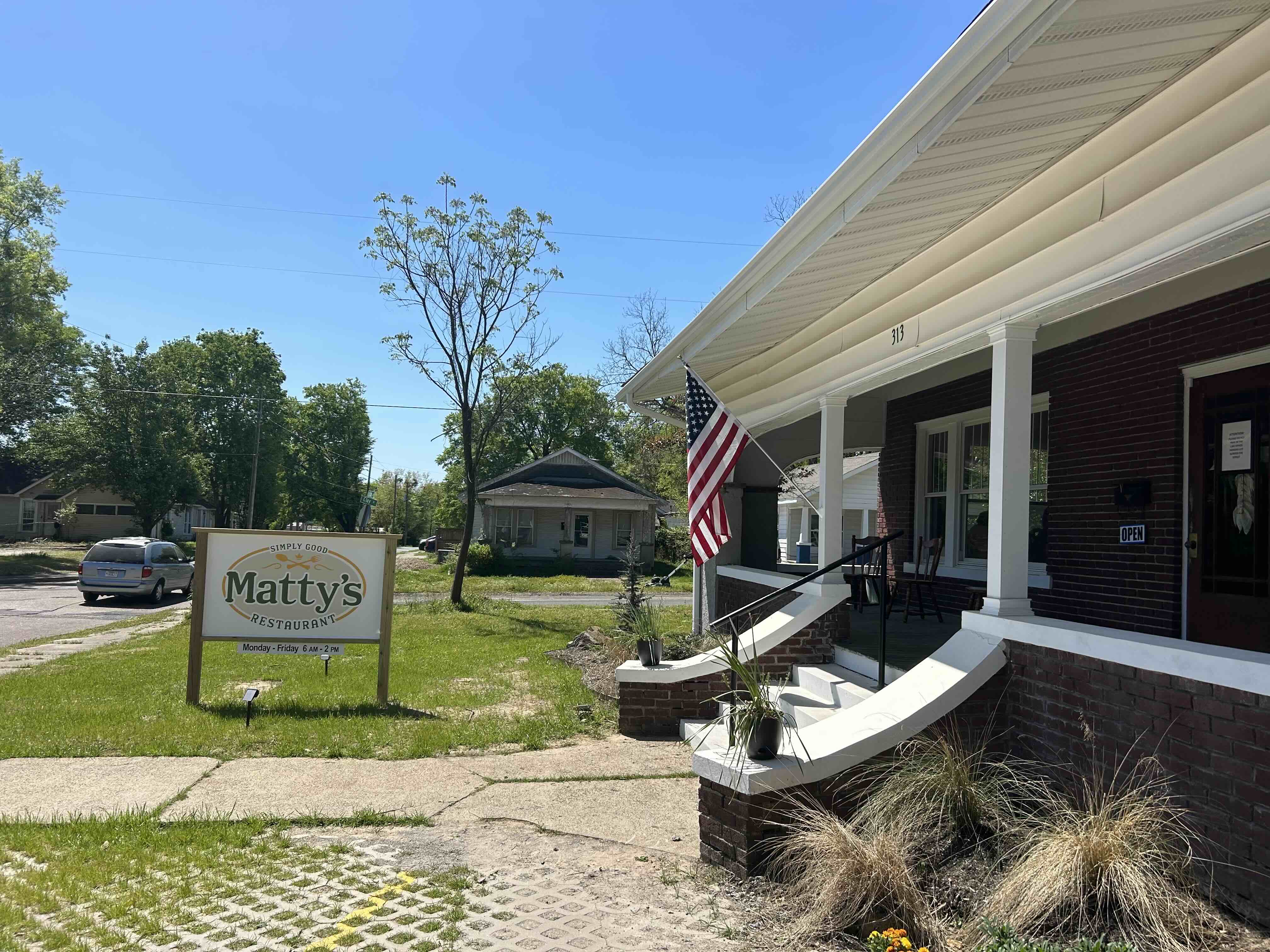We have all experienced that gut-wrenching, heart pounding moment when the group of “cool kids” walked by us in our elementary, middle school or high school days. The overwhelming desire to be included in such an elite group was indescribable and, unfortunately, could not be healed by a mother’s encouraging words that “You’re great just the way that you are.” Nothing could change the fact that that group of people felt greater than and you felt less than. You loved your friends, of course, but there was something about that group of friends that made it seem like they were special.
It was exclusive. It was desirable. It was the impenetrable “Inner Ring.”
In 1944, C.S. Lewis gave a lecture at the University of London entitled “The Inner Ring.” In his lecture, Lewis, who was hailed “one of the greatest Christian writers of the twentieth century” by Christianity Today, we get a firm grasp on the weight of this “friend group” comparison that has only grown over time.
Throughout Lewis’ life and up to today, God has used his writings to portray what the Christian walk should look like. While Lewis’ words are by no means God-breathed, I’m a firm believer that any topic relevant enough for him to write about is important enough to be applied in my own life.
To begin, let me clarify the meaning of the “Inner Ring.” Like Lewis’, I will use terms like the “circle” or the “Inner Ring” to refer to those seemingly elite groups of individuals that others want to be involved with. Sometimes we mistakenly believe that these groups only exist in high school or in movies, but what we fail to see is that this unconscious separation between groups of people occurs naturally throughout our every day lives, regardless of age and maturity. This “Inner Ring” can invade the workplace, school and our everyday friendships.
The circle compels us, even if ever so slightly, to abandon the people we love and know. It whispers the idea that if we were a member of that group, whoever they may be, we would be happier. Unfortunately, our desire to enter into the circle can be damaging for pre-existing friendships, as it replaces good relationships with the hope of high status friendships. If we trade in our genuine friendship for that which makes us feel accomplished, we have been mistaken and ultimately could find ourselves unfulfilled and worse off than we were before.
More often than not, the people in the Inner Circle aren’t even people who the outsider wants to be around; it is simply the idea and status that the group symbolizes that is so compelling.
Lewis writes, “And if in your spare time you consort simply with the people you like, you will again find that you have become unaware to a real inside: that you are indeed snug and safe at the center of something which, seen from without, would look exactly like an Inner Ring. But the difference is that its secrecy is accidental, and its exclusiveness a by-product and no one was led thither by the lure of the esoteric: for it is only four or five people who like one another meeting to do things that they like. This is friendship. Aristotle placed it among the virtues. It causes perhaps half of all the happiness in the world, and no Inner Ring can ever have it.”
Another negative aspect of the circle is the exclusion that comes along with it. Romans 15:5-7 says, “Now may the God who gives perseverance and encouragement grant you to be of the same mind with one another according to Christ Jesus, so that with one accord you may with one voice glorify the God and Father of our Lord Jesus Christ. Therefore, accept one another, just as Christ also accepted us to the glory of God.”
In other words, as Christians, we have received a call of inclusiveness. This means that, while God supports our close relationships with one another, He also compels us to reach out to others outside our immediate friend group. When we remain in our comfortable position, we are limiting our ability to grow. When we live intentionally and choose to include others, our view of the world changes and God shapes our relationships.
Inner Circles plays a major role in creating a sense of exclusion. That is not what we are called to do as Believers. We are called to love others, and when we are completely separate from them, true love is impossible. We must anchor our friendships on the Lord and the calling He has placed on our lives.
Lewis said, “But your genuine Inner Ring exists for exclusion. There’d be no fun if there were no outsiders. The invisible line would have no meaning unless most people were on the wrong side of it. Exclusion is no accident: it is the essence.”
This doesn’t always have to be a bad thing. Even Lewis explains that it is necessary that smaller committees and groups exist in order that wise decisions can be made, but that does not mean that one group is superior to those who are not included in the group. The problem occurs when the main desire of one’s heart is to be included in the “Inner Ring.” Lewis explains that if that is the chief motivation for all that we do, we will be very disappointed in the outcome.
“The quest of the Inner Ring will break your hearts unless you break it,” Lewis said. “But if you break it, a surprising result will follow. If in your working hours you make the work your end, you will presently find yourself all unawares inside the only circle in your profession that really matters.”
Ultimately, we all struggle with this overwhelming desire to be included in the circle and it is my prayer that we would find our worth in Christ and not in the people we are around. Being part of the “Inner Ring” is a great feeling for a short period of time, but it will ultimately leave us feeling unfulfilled. The Lord created us all individually the exact way that He intended, and we should not allow the idea of the circle stomp out our worth.
For those of you who may feel like you are in the “Inner Ring” and you realize the effect that it is having on your life, it is my prayer that you would use it to be a blessing to others. Use it to glorify God by reaching out to others. Go to where the outsiders are, don’t let them just come to you. Listen to what the Lord has to say and break down the invisible fence between the circle and the outside world.
For those of you who may feel like the outsider, know that the Lord loves you more than you could ever imagine. He supports you. He cares for you. He understands you. You do not have to be in a certain group of friends to have a fulfilled life. You simply have to follow God, live for Him, and trust that He knows what is best for your life.
Lewis’ essay brings to light an issue that can often be overlooked in our Christian walk. We are called to community and the “Inner Ring” breaks apart the healthy relationships that the Lord has planned for our lives. Let us, therefore, seek to walk in inclusivity and fellowship.
By Camryn Reeves, staff writer






